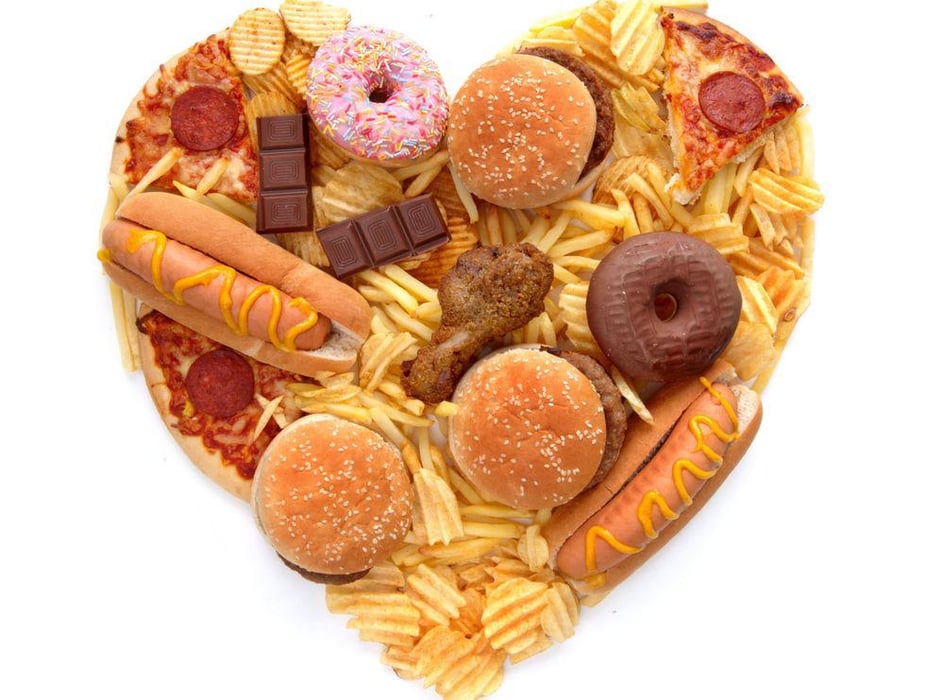Another Study Links ‘Ultra-Processed’ Foods to Higher Cancer Risk

WEDNESDAY, Feb. 1, 2023 (HealthDay News) -- Fizzy sodas, microwaveable meals and packaged cookies are convenient for people on the go, but these folks might not go as far as they’d like if that’s all they eat.
Ultra-processed foods appear to increase the risk of developing and dying from a variety of cancers, a new large-scale study says.
Every 10% increase of these foods in your diet increases your overall risk of cancer by 2% and your risk of a cancer-related death by 6%, researchers reported Jan. 31 in eClinical Medicine.
The risk is even higher for specific cancers, particularly those that primarily affect women.
For example, every 10% increase in a woman’s consumption of ultra-processed foods makes her 19% more likely to develop and 30% more likely to die from ovarian cancer, the investigators found.
The researchers describe ultra-processed foods as “industrial formulations made by assembling industrially derived food substances and food additives through a sequence of extensive industrial processes.”
Industrially derived ingredients include things like high-glucose corn syrup, modified starch, protein isolates, emulsifiers, stabilizers and preservatives, the study authors said.
“Our bodies may not react the same way to these ultra-processed ingredients and additives as they do to fresh and nutritious minimally processed foods,” lead researcher Kiara Chang, a research fellow with Imperial College London’s School of Public Health, said in a college news release.
“However, ultra-processed foods are everywhere and highly marketed with cheap price and attractive packaging to promote consumption,” Chang continued. “This shows our food environment needs urgent reform to protect the population from ultra-processed foods.”
Ultra-processed foods make up 57% of the average American’s daily calories, up from 53% in 2001, noted Marjorie McCullough, senior scientific director of epidemiology research at the American Cancer Society.
For this study, Chang and her colleagues analyzed records for nearly 200,000 participants in the UK Biobank, an ongoing health study of people in England, Scotland and Wales.
Part of the Biobank research involved people filling out questionnaires regarding their diet. Records also were kept on who developed and died from 34 types of cancer.
The researchers tracked participants for 10 years and found out that the more people chowed down on ultra-processed foods, the higher their risk of cancer.
This could be because highly processed foods are calorie-dense and therefore are more likely to make a person fat, McCullough said.
“Eating highly palatable ultra-processed foods is linked to excess body weight, itself a risk factor for at least 13 cancer types,” McCullough said. “These foods are usually higher in sugar, refined grains and fat, and may impact metabolism differently than whole, unprocessed or minimally processed foods.”
These foods — and their packaging — also contain loads of chemicals that could contribute to cancer risk, said Dr. Emanuela Taioli, co-leader of the Cancer Prevention and Control Program at Mount Sinai’s Tisch Cancer Institute, in New York City.
“They are treated with preservatives, with chemicals that preserve their freshness. And most of the time, they are in containers that are plastic or other material that is known to be one of these environmental cancer risks from endocrine disruptors,” Taioli said. “Then when they are warmed up, we don't really know what happens to the chemistry of the preservatives, which with the heat can become other compounds that are carcinogens.”
The presence of endocrine-disrupting chemicals like BPA and PFAS could explain, in particular, the increased risk in women’s cancers, Taioli said.
“These compounds modify hormone patterns or behave as hormonal,” Taioli said. “The body sees more hormones because these chemicals look like hormones, so they affect cancers that are very hormone-sensitive. From these results it seems like the role of endocrine disruptors should be explored further.”
Excess fat is also a known risk factor for both breast and ovarian cancer, McCullough said.
To lower their cancer risk, as well as their risk of heart disease and other ailments, people should opt for fresh foods as much as possible, McCullough and Taioli said.
“The American Cancer Society recommends following a healthy diet that includes a variety of colorful vegetables and whole fruit, fiber-rich legumes, whole grains and limiting or not including red and processed meat, sugar-sweetened beverages and highly processed foods and refined grains,” McCullough said.
Nations should take steps to protect their citizens from the health effects of these foods, Chang said, urging the use of front-of-pack warning labels for ultra-processed foods to aid consumer choices.
More information
The U.S. National Institutes of Health has more about the cancer risk from obesity.
SOURCES: Kiara Chang, MSc, research fellow, Imperial College London’s School of Public Health; Emanuela Taioli, MD, PhD, co-leader, Cancer Prevention and Control Program, Mount Sinai’s Tisch Cancer Institute, New York City; Marjorie McCullough, ScD, RD, senior scientific director, epidemiology research, American Cancer Society; eClinical Medicine, Jan. 31, 2023, online
Related Posts
Regular Screening Pays Off for People at High Risk for Pancreatic Cancer
WEDNESDAY, July 20, 2022 (HealthDay News) -- Pancreatic cancer often has a...
Cuando un trasplante renal falla, la mejor opción es intentarlo de nuevo, según un estudio
MARTES, 28 de diciembre de 2021 (HealthDay News) -- Tuvo la suerte de recibir un...
Obesity Linked to Increased Risk for Crohn Disease
TUESDAY, May 17, 2022 (HealthDay News) -- Obesity, as measured by body mass index...
Rate of COVID-19 Infection Higher in U.S. Youth Than Older Adults
THURSDAY, July 21, 2022 (HealthDay News) -- The incidence rate and relative risk...
